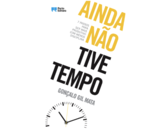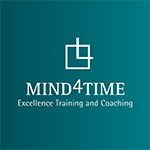Flam Railway, NORWAY
So how do things arrive into your world? How do you make sure you don't miss anything? What elements help you implementing some sort of pace for your inputs so that your focus is optimal? This is the first type of functionality we need to address in our system: collecting.
Collectors
Collectors are probably the most neglected components in most personal systems I come across. It's not that they don't exist. They are there, mainly because technology makes tem available. It's just that many times they're not used in a productive way. So what are collectors, what is their purpose and how can we implement that functionality?
If you were to talk with "Mr. Collector", this could well be what you would say: "Hey, Mr. Collector, this just came into my world, and I feel responsible to do something about it. I shouldn't be interrupted right now so I don't lose focus, can you please hold it for me until I can deal with it properly? Don't forget, ok? I'm trusting you... Thanks!"
So a collector is any sort of system that can collect inputs, and present them to you at anytime later upon request. Examples of collectors could be: your e-mail inbox, your classic physical mail box, or a physical "in-box" (which sometimes is probably your hole desk), a list of missed calls in your cellphone, your assistant, your notebook notes or a little piece of paper where you write a nice idea while shaving. These are devices that can hold on to items and later are able to list them back to you.
You can generally divide them into passive and active. Passive ones are automatically implemented and do not require your intervention at the time of inputs arrival, like e-mail inbox: they can work while you sleep. Active ones are fed by you - a note book, a voice memo recorder: you throw stuff at them you want to collect and later assess and process.
Collectors characteristics and good use
If you have an e-mail alert interrupting you every time a new message arrives, you are not really taking advantage of the collector. The same way, if you answer your phone on the movie theatre just to whisper "I can't speak right now, I'm at the cinema", then you are missing the picture (in both senses).
The main feature of a collector is that it enables you to keep focus on whatever you are doing, while knowing that new arriving items are being properly queued in some trustworthy way so you can deal with them later. This is the first step to implement your "traffic lights": you can safely make them wait for a bit, knowing you'll address them later on. How long you can keep items waiting for you and why you should collect them instead of addressing them immediately has already been widely discussed in previous chapters - the short answer is: focus is your productivity power, your gold, your value. Take good care of it!
What are then the main criteria of good collectors? Good collectors must be totally reliable. If your brain can't trust your collectors, it won't allow itself to dive into a deep focus state. A good passive collector will NOT notify you every time a new input arrives - if it does, it's not doing its job. A good active collector must be really right at hand when you need to use it. Many people use small pieces of paper in their pockets, and most productivity applications have some sort of "quick entry" shortcut so you can "dump" anything in one or two seconds and continue your work, with minimal distraction. You don't want to have to open some application, then choose a menu item, then select a project, blablabla. The same for you smartphone app. It must be really at hand, ready for your input.





Renne,
Ideas for quick entry while working out:
1. voice memo app
2. call your own voicemail service
3. some sort of voice-to-text dictation service, e.g. to SMS or other inbox.
Pavel.